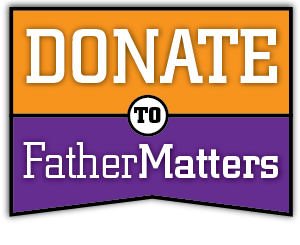Your Child Is Not Your “Friend”
By James Lehman, MSW
There is a purely emotional part of the parent/child relationship that is built on affection and esteem. Parents and children are genetically geared to love each other, and it’s a beautiful thing to behold.
But there’s a stage where parenting becomes a functional role, not just an emotional role. With infants, the emotional role shows when a mother demonstrates her love by holding, talking and singing to the child. The functional role involves feeding, changing diapers and bathing the baby. One without the other is damaging for the child. So if she just loved that child but didn’t do the responsible functional things, that child would be at great risk and would be harmed and neglected. If she just took care of the functional things and didn’t show that child any love, it would have long term effects on the child’s emotional development. The emotional and functional parenting roles go hand in hand. It’s not healthy to emphasize one at the cost of the other.
“I think parents often make the mistake of making their child their confidante. The child is not morally, emotionally or intellectually prepared to play that role.”
I think as kids grow older, the parent’s role becomes more functional and less emotional, which is a hard lesson for parents who want to be their child’s “best friend.” As parents, they may feel those emotions inside, but they really have to do more for their child functionally, and set limits with the child. Limit setting is a very healthy function. It’s how kids learn to figure out what’s safe and what’s not safe. What’s appropriate and what’s not appropriate. The functional role changes for parents as the child grows. With a one-year-old, it involves changing diapers. With an eight-year-old, the functional role involves getting homework done. With a fifteen-year-old, it involves enforcing a responsible curfew.
Why You Shouldn’t Make Your Child Your Confidante
I think parents often make the mistake of making their child their confidante. So when they say, “I want to be his friend, and I want him to be my friend,” what they’re really saying is “I want be his confidante.” And that just does not fit with the functional role of a parent.
It’s a very well-meaning trap that parents fall into. They want to share with the child how they really feel about their grandmother. How they really feel about their neighbor. How they really feel about their teacher. But it’s ineffective because the child is not morally, emotionally or intellectually prepared to play that role. If you’re forty years old and you want a confidante, find another forty-year-old. Find a fifty-year-old. Find a thirty-five-year old. But don’t look for a ten-year-old or a thirteen-year-old or a five-year-old.
If parents think teachers are in error, they should keep that to themselves and their peers and deal with the school directly. If you think the teacher’s an idiot for not letting your child chew gum in the room, you can be your kid’s “best friend” and say, “That’s a stupid rule and that teacher’s a jerk.” Or you can be a functional parent and say, “Boy, I really disliked that rule when I was in school too. But I had to follow the rules.” Two different responses. Both responses empathize with the child, but one makes him a confidante, which is ineffective. The other teaches him the importance of following rules. Remember this: if you punch holes in authority figures, thinking you’re being a confidante with your kid, don’t be surprised when he disrespects that authority figure. And then if you give him consequences for that disrespect, he’s going to look at you as a hypocrite.
When you make your child your confidante, you are saying that you and the child are co-decision makers. But the fact is, you and your child are not co-decision makers in any realistic way. Kids can offer you their opinion. They can tell you what they like and dislike. But certainly decisions, especially important ones but even certain minor ones, have to be made by you, the parent. Kids have to understand that the family moves as a unit and the adults make the decisions.
I think you can certainly share some things with a child without turning him into a confidante. One of the things you can share with a child is the statement, “We can’t afford that.” It’s a factual statement that explains the limits under which you must live. What you shouldn’t share with the child is, ”I don’t know how I’m going to pay the rent this month.” It’s something that the child is not prepared for, and it develops in him a way of looking at the world that is unhealthy and not realistic.
If you have a tendency to treat your child as a “friend,” you should understand this important interpretation of friendship: friends are a group of people that have the same notion about ideas and life. The truth is, children and adults have very different notions about what they should be doing. They have entirely different notions about what’s right and wrong. They have very different notions about what they want to do tonight. So I think that you need to be a parent to your child and be loving, caring and responsible. But I think you have to find your confidantes outside of that family structure.
Don’t Try to Parent Your Child The Way You Wish Your Parents Had Parented You
Many parents try to raise their child in a way that they wish their parents had parented them. It sounds nice on paper, but it just doesn’t work. So if your parents were distant or rigid with you, or they seemed uncaring to you or they seemed self-involved to you or they made horrible personal mistakes and didn’t give you the guidance you needed, you shouldn’t overcompensate for that by violating parent-child boundaries with your own child. This can be characterized as a “reaction formation.” In reaction to deficits you saw in your own parents, you form a way of parenting that’s not healthy for you or for your child.
Remember that anything done in a reactionary way is going have unforeseen consequences. And the biggest problem with parent-child friendships is all the unforeseen consequences. Parents tend to look only at the foreseen consequences. For example, my child will like me more if I’m his friend. He’ll trust me. Parents don’t look at the unforeseen consequences, such as, he won’t listen to the word no because I never used it with him or taught him how to deal with it.
The goal of adolescence is individuation–separation from adults. That means that the child is going to have his own business, beliefs and rules that he’s not going to want to share with adults. You need to know that it’s not a violation of the parent-child relationship for that child to develop his own set of friends and his own values. Those friends and values may not be healthy from a parent’s point of view or an objective observer’s point of view. But it’s the child’s job to work through that. People who don’t individuate from their parents in pre-adolescence and adolescence end up with emotional and social problems in life.
Many parents see this individuation happening in their adolescent children and feel abandoned by the child when they have parented too much in the emotional role and have acted as the child’s friend. They feel a remarkable sense of loss, and they compensate for it by blaming the child.
Friends Don’t Let Friends Not Do Their Homework
I want to draw an important distinction for you here. In the end, you can be your child’s friend—just not his confidante. The key is having a responsible friendship with your child.
You know the saying, “Friends don’t let friends drive drunk?” Well, friends don’t let friends not do their homework. Friends don’t let friends make excuses for failure. Friends don’t let friends badmouth the teacher and defy the rules in the classroom. That’s the type of friend you need to be to your child. A responsible friend. And the model of responsible friendship is identical to the model of responsible parenting.
How to Stop Being Your Child’s Confidante Now
If you’ve “shared” too much with your child and not set the kind of limits they need, for whatever reason, all in the name of being your child’s “friend,” you can change to become more effective. It begins by talking to your child—about what you’re going to talk about from now on. Say, “I’ve decided that there are some things I should be talking to other adults about. So I’m not going to talk to you about them anymore because I think it hurts our relationship.” You don’t have to be specific about the subject matter. Just be clear.
Then you need to learn how to respond differently to your child, not simply demand that the child communicate differently. For instance, if you and your child have been talking about what a jerk a certain teacher is for years and the child brings it up, you can’t simply come out and say, “Don’t call that teacher a jerk anymore.” Instead, say this: “I don’t think it helps us to label that teacher. Let’s figure out how you can handle this situation successfully.” An irresponsible friend will sit around and badmouth the teacher with their child. A responsible friend will help their child solve the problem he’s having with the teacher.
Parents in divorced families will often both try to be the child’s confidante, and the child gets stuck painfully in the middle. The mother’s telling him what the father’s like, what he’s doing and not doing. The father’s talking about what mom is like, how crazy she is, how controlling she is. I’ve heard kids in divorced families say that their mom is “so controlling, she’s awful. I can’t live with her.” They were just parroting what the father said to them. The most poisonous thing is that what the parents are saying might be true to some degree. And the kid can see it. But he can’t react to it properly because he doesn’t have the maturity to do it. These parents might point out defects in the other parent that are accurate. But the way they point them out—by treating the child as a confidante–empowers the child to attack them.




